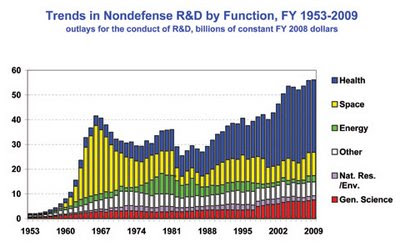The parish would occasionally get a bit of publicity for its far-from-traditional Catholic use of its church and hall: maintaining a home for the Gay and Lesbian Choir, for example. But there was occasional word leaking out about how they ran the parish in other very odd ways. (I was told, for example, that occasionally a Sunday "mass" would be led by a dancing, tambourine rattling nun, who used to strain the patience of even the most liberal parishioners.)
The parish likes to portray itself as very active and lively. In truth, however, it maintained church attendances of a moderate level (3 services each Sunday) by attracting liberal Catholics from all over Brisbane. Almost certainly, it was at the same time scaring away local potential parishioners who didn't want to be harangued about social justice and the Howard government at regular intervals.
Finally, earlier this year the Archbishop put the church on notice that the parish's novel forms of liturgy, and refusal to follow church teaching in various areas, meant that it was going to be told that it had ex-communicated itself from the Catholic Church unless it started genuinely following some Church teaching.
The parish responded with a letter which (as expected) quoted a lot of Vatican II words, and basically indicated that, in most respects, they were just going to keep on doing their stuff. (I've read it, but can't find a link to it on the web.)
Father Peter Kennedy, the nominal parish priest, has recently continued his wacky ways by holding a church ceremony with some aborigines in which a "sacred treaty" was entered into by the parish.
If you want to read an air-headed account of how important such a "treaty" is to the locals aborigines, have a read of this interview from the Religion Report, featuring Peter Kennedy himself and a couple of aboriginal activists including Sam Watson. Watson has been around Brisbane forever. I don't know if he achieves much apart from organising rallies and getting his face in the media at least once a year, but he has always struck me as a noisy belligerent advocate of the particularly irritating kind.
Of course, no function would be complete at St Mary's without the Gay and Lesbian Choir singing, so they were there for the signing of the "treaty".
It would appear that the treaty recognises the "sovereignty" of aboriginals over the Church land, or some such. This means, according to Sam, that they'll be rushing to defend St Marys if the Archbishop shuts it down. At least he seems to not be advocating violence:
Of course I'm not talking about picking up guns et cetera, that sort of thing, not talking about defending it that way, but we will be there, we're a part of St Mary's family, part of the St Mary's community.Just more noise and agitation, although I have no idea how many followers Sam may be able to muster to defend the barricades at St Mary's. (Peter Kennedy says people may take to sleeping inside to stop the church re-possessing it. Why does a parish that talks up true authority as being within the non-material "community of faith" worry so much about having a particular building in which to meet in a few times a week?) I hope the Archbishop closes the church, if only for the entertainment value.
The Church keeps running the line that it is only catholic traditionalists of the somewhat eccentric kind who have dobbing in St Marys to the Archbishop and (when he was slow to act) Rome. They may be right, but the character and beliefs of Richard Stokes are hardly relevant if his reports of what St Marys does in liturgy are true. (And St Mary's never denies that they are.)
When discussing this over at Currency Lad's blog a few months ago, I suggested that there is already a Liberal Catholic Church in Brisbane; surely St Mary's should just merge with them and be done with. It was pointed out that that church is a bit of an oddball one, with historic ties to the Theosophical movement. (They allow for re-incarnation, for example. But then again, St Mary's had a Buddhist meditation group using the church too.)
Well, now I've found the movement for St Mary's. The Reformed Catholic Church, (Trade Mark) which is a recent innovation from Columbus, Ohio, which seems (like St Mary's) to be primarily motivated by "inclusiveness" (meaning, welcoming all gay and lesbian couples, female priests, the remarried, etc. Gay and lesbian couples are able to be "blessed", naturally.) It would not be surprising if many of its clergy were gay and lesbian too.
Oddly, it claims a significant number of clergy in Africa, a continent not particularly well known for its cultural tolerance of homosexuality. (Update: I see the reason here: it is OK with polygamy, and lets priests marry their "long time girlfriends". Still, I wonder what those African priests think of gay weddings in America?)
It seems that this reformed church shares all the values of St Mary's: a fondness for some (but only some) of the trappings of Catholics Church, while at the same time being able to make up their own doctrine based on what I would call modern perceptions of "niceness", rather than scripture and centuries of tradition.
So, parishioners and priests of St Mary's, I have found your future for you! Go, be Reformed, be happy. Leave the rest of us billion or so Catholics alone, and while we're at it, go find your own building to worship in. Sam Watson probably has a tent you can use. If you are the future of the Church, you should flourish no matter where you meet.
